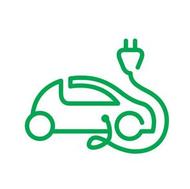Electric vehicle outlook gets curiouser and curiouser

To say that the legislative picture regarding government support for electric vehicles is blurry would be a serious understatement. Not to get political, but the challenge is that right now much of the support for promoting and testing the nationwide (if not national) infrastructure that we need to get electric vehicles on the road is rolled into highly contentious energy bills.
Right now, as far as I can tell, the best hope for some new legislation focused on electric vehicles is wrapped into a new energy and oil bill introduced on Tuesday by Senate Majority Leader Harry Reid. (The best take I've been able to find about that bill was in the Washington Post, but you'll have to fill out their free registration to read it, sorry.) The bad news is there's only about $400 million focused on electrification in this bill, while about $4 billion is dedicated to natural gas vehicles, which represent another oil alternative. That moolah is substantially less than what was included in other bills proposed earlier this year. The information in this article from the Plugin Cars Web site will give you an idea of just how confusing and contentious everything has become, even though it's probably a bit outdated now.
Electrical vehicles are on my mind this week, of course, because there have been a number of key developments (and at least one more planned).
There was the big reveal on the Chevrolet Volt pricing: not so cheap at $41,500 before a potential $7,500 tax credit.

The product line will include what the company is calling Square D smart charging stations that will be produced at a number of different levels depending on whether the technology is intended for residential use, commercial applications or quick-charging solutions.
Incidentally, a recent survey in Southern California released this week by the Electric Power Research Institute found that 95 percent of the respondents would like to charge their electric vehicle in their own home -- which is kind of odd considering that very few people currently fill their "legacy" cars in their own driveway. (Unless, as I did in my "youth," you live on eight acres and need ready access to fuel to cut the lawn and shovel out of the driveway.)
The survey, which EPRI conducted with Southern California Edison, found that respondents WOULD be inclined to use public fast-charging technologies. (Defined as a facility that could charge in 10 to 15 minutes.) According to the data, two in five hybrid owners would make a buying decision based on the availability of that option for a particular vehicle; one in three non-hybrid owners said the same. Close to three-quarters of all respondents said they would pay a premium to get a vehicle with a fast charging option.
Ah, instant gratification.
If you feel like reading more about electric cars, I recommend this additional article from SmartPlanet, based on coverage of the Plug-in 2010 conference this week in San Jose, Calif. The conclusion: Don't hold your breath waiting for electric cars.